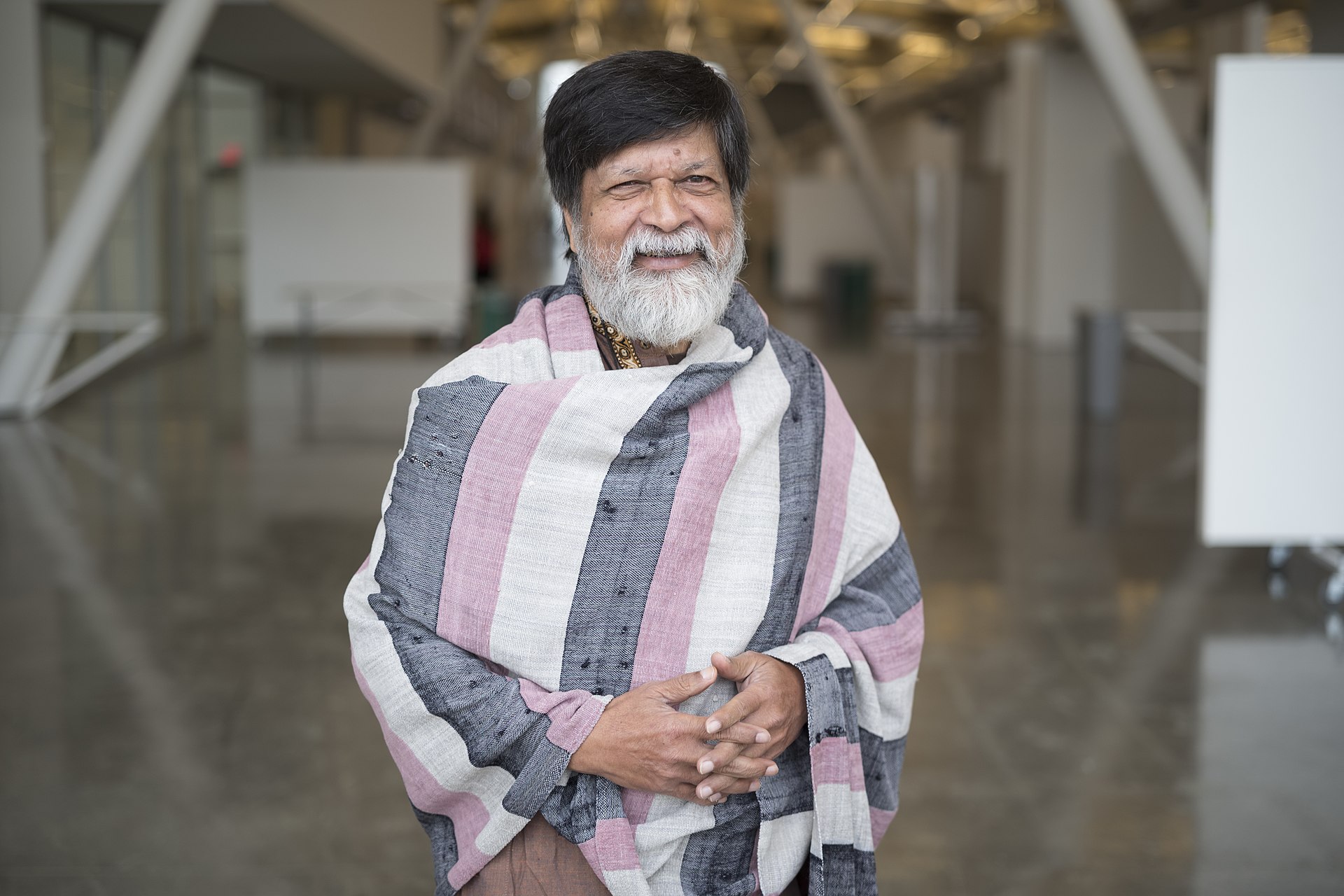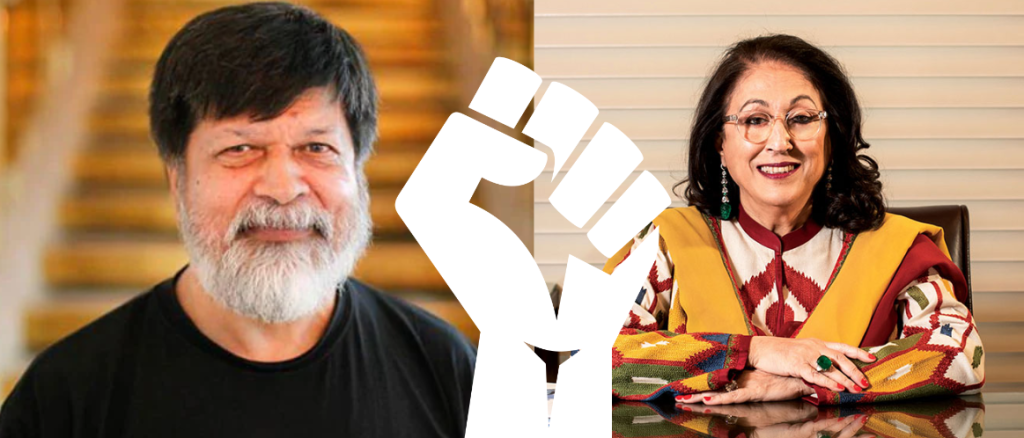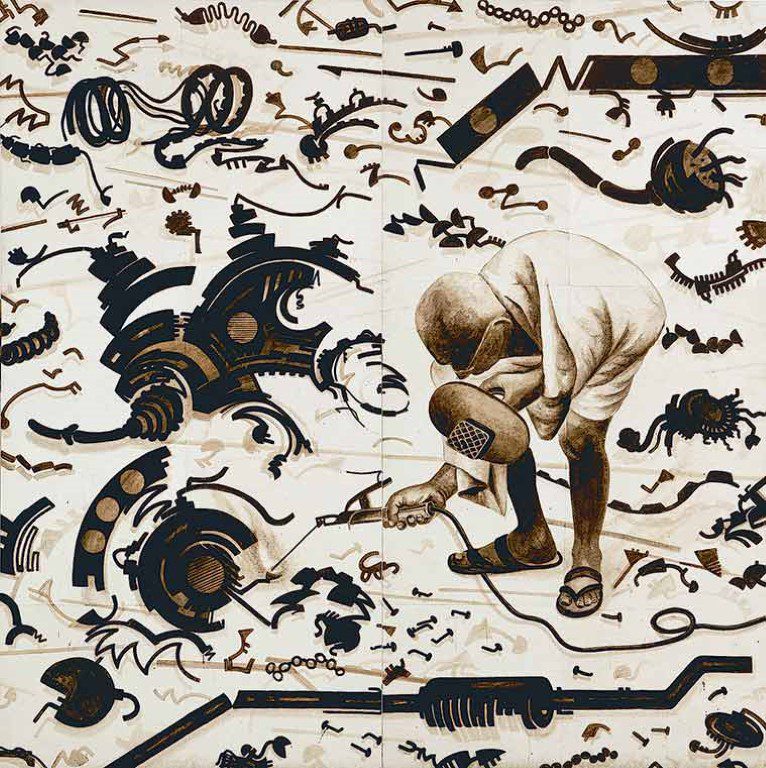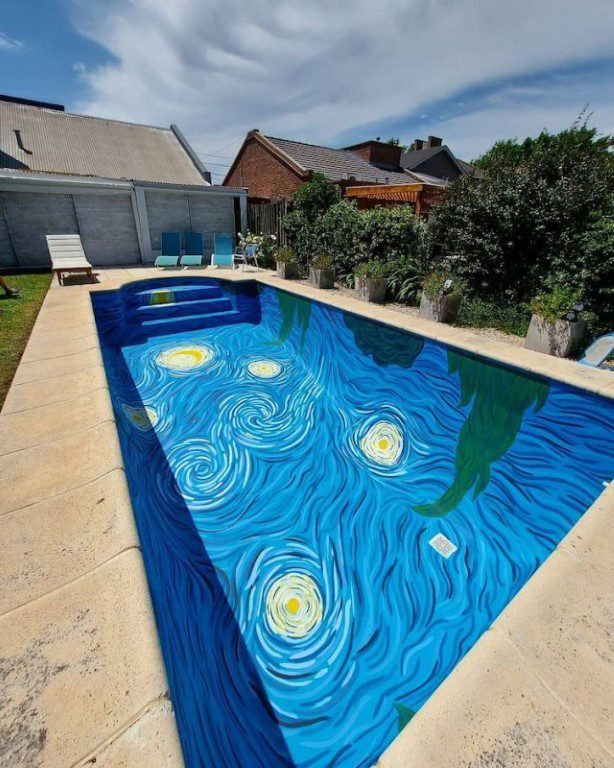Renowned Bangladeshi photographer and activist Shahidul Alam has withdrawn from his upcoming retrospective exhibition, “Singed but not Burnt,” at the Kiran Nadar Museum of Art (KNMA) in Noida, India. In a statement, Alam expressed his solidarity with artists who criticise the use of government-run cultural institutions as tools of state-sponsored propaganda instead of spaces for critical thinking. Alam’s decision stems from his concerns over the involvement of Kiran Nadar, advisor to an exhibition at the National Gallery of Modern Art, and the termination of a museum employee, Sandip K Luis, for expressing critical views on social media. This article delves into the controversy, shedding light on the concerns Alam and the art community raised surrounding cultural institutions’ independence and integrity.
Alam’s Statement and Concerns
Shahidul Alam, a prominent figure in the art and activism scene, articulated his concerns through a statement addressing his withdrawal from the exhibition. He expressed solidarity with artists who have noted that government-run cultural institutions in India, including the KNMA, have transformed into instruments of state-sponsored propaganda rather than spaces for critical thought. Alam drew attention to two specific areas of concern. Firstly, he highlighted Kiran Nadar’s endorsement of art events associated with the current Indian regime’s propaganda machinery. Secondly, he criticized the censorship of individuals who legitimately critiques such associations. Alam’s statement reflects a more considerable worry about the compromised independence and critical voice within cultural institutions in both India and Bangladesh.

Nadar’s Involvement and the “Jana Shakti” Exhibition
Alam’s concerns were sparked by Kiran Nadar’s involvement as an advisor for the exhibition “Jana Shakti: A Collective Power” at the National Gallery of Modern Art in Delhi. The exhibition marked the 100th episode of Prime Minister Narendra Modi’s monthly radio address, “Mann Ki Baat.” Alam criticized Nadar’s endorsement of events perceived as part of the propaganda machinery of the current Indian government. This association raises questions about the role and independence of cultural institutions and their alignment with political agendas.

The Termination of Sandip K Luis
Alam’s statement also referenced the termination of Sandip K Luis, the former Manager of Curatorial Research and Publications at the KNMA. Luis was dismissed after expressing critical views on social media regarding the exhibition and Nadar’s involvement. The decision to terminate Luis raises concerns about the freedom of expression within the institution and the suppression of dissenting voices. Critics argue that dismissing an employee for an individual’s expression sets a troubling precedent and reflects a high-handed approach to the functioning of cultural institutions.
Art Community Solidarity
Following Luis’ termination, several members of the art fraternity expressed their support for him and raised concerns about the institutional functioning of the KNMA. In a statement issued by “concerned individuals” on the Kafila portal, the dismissal of Luis for expressing his views was condemned as a high-handed approach. This incident highlights the need for cultural institutions to encourage an environment that promotes open dialogue and critical thinking, allowing individuals to express their opinions without fear of retribution.
Conclusion
The withdrawal of Shahidul Alam from the Kiran Nadar Museum of Art’s exhibition and his concerns about the involvement of Kiran Nadar and the termination of Sandip K Luis has ignited a conversation about the independence and integrity of cultural institutions. Alam’s statement raises valid questions regarding transforming government-run cultural institutions into propaganda tools rather than spaces for critical engagement. The incident emphasises the importance of preserving freedom of expression, promoting diversity of viewpoints, and safeguarding the integrity of cultural institutions as vital pillars of society. It remains to be seen how these concerns will shape the future direction and functioning of cultural institutions in India and beyond.
Touching the political soul of a country with a Camera: Click here

Contributor





